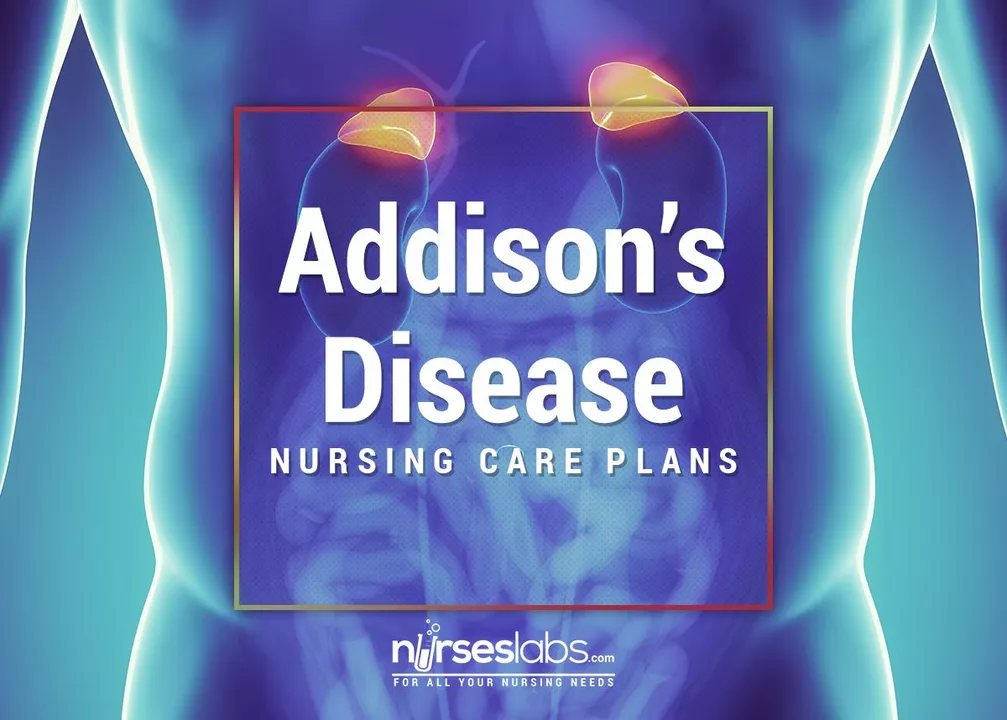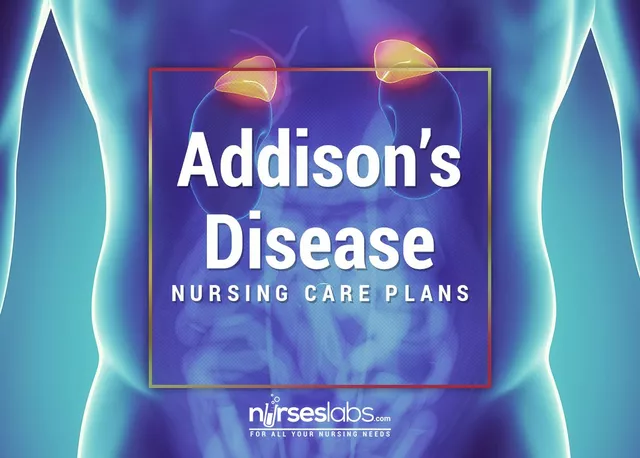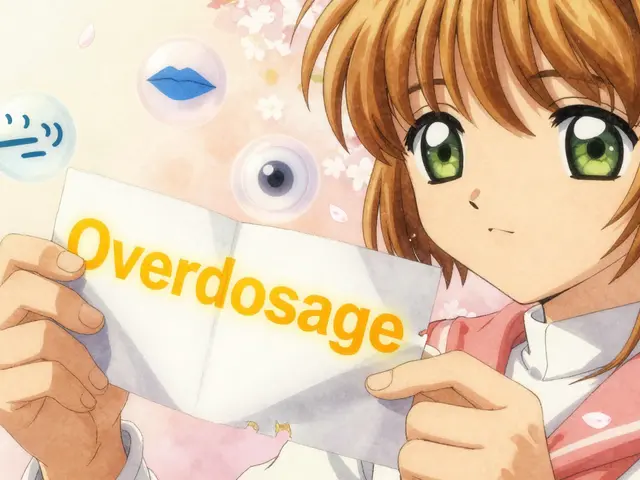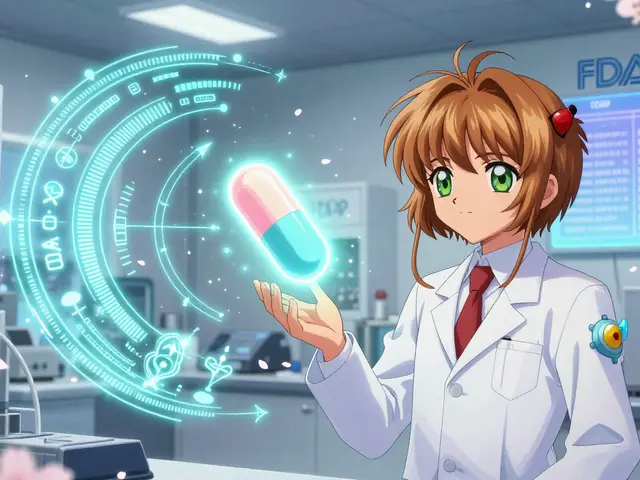Understanding Addison's Disease
Addison's disease, also known as primary adrenal insufficiency, is a rare auto-immune disorder that affects the adrenal glands. These small glands sit atop the kidneys and are responsible for producing hormones such as cortisol and aldosterone, which are essential for maintaining various bodily functions, including blood pressure, metabolism, and immune system responses. When the adrenal glands do not produce enough of these hormones, it can lead to a variety of symptoms and complications, some of which can be life-threatening if not properly managed.
In this article, we will explore the importance of having a support system in place for individuals living with Addison's disease. By learning about the different ways in which a support network can help to improve the overall quality of life for those affected by this condition, we can begin to understand just how crucial it is to have a strong foundation of support in place.
Emotional and Psychological Support
Living with Addison's disease can be an incredibly isolating experience, as the symptoms and complications of the condition can often make it difficult for individuals to participate in many of the activities and social events that they once enjoyed. By having a strong support system in place, those with Addison's disease can find comfort in knowing that they are not alone in their journey and that there are people who genuinely care about their wellbeing.
A support network can provide a safe space for individuals to express their fears, frustrations, and concerns about living with Addison's disease, which can be incredibly cathartic and help to alleviate some of the emotional and psychological stress associated with the condition. Additionally, these support networks can also help to provide valuable resources and information about managing the disease, which can be incredibly empowering for those living with the condition.
Medical Management and Monitoring
Managing Addison's disease requires careful and consistent medical monitoring, as well as ongoing adjustments to medications and treatment plans. A support system can help to ensure that individuals living with the condition are able to access the medical care that they need and are able to stay on top of their treatment plans. This can include helping individuals to schedule and attend medical appointments, as well as assisting with the management of medications and other aspects of their treatment plans.
Additionally, a support system can help to provide valuable information about new treatment options and advancements in the field of Addison's disease research, which can be incredibly beneficial for those living with the condition. By staying informed about the latest developments in the field, individuals can feel more in control of their disease and can make more informed decisions about their treatment plans.
Adapting to Lifestyle Changes
Living with Addison's disease often requires significant lifestyle changes, as individuals must learn to manage their symptoms and avoid potential triggers for adrenal crises. Having a support system in place can help to make these adjustments more manageable, as friends, family members, and other supportive individuals can provide guidance, encouragement, and assistance throughout the process.
Whether it's learning how to prepare healthy meals that are compatible with an Addison's-friendly diet, finding new ways to manage stress and anxiety, or discovering new forms of exercise that can be safely incorporated into an individual's routine, a support system can be invaluable in helping those with Addison's disease to adapt to their new way of life.
Emergency Support and Planning
One of the most critical aspects of living with Addison's disease is having an emergency plan in place, as individuals with the condition are at a higher risk of experiencing an adrenal crisis. An adrenal crisis is a life-threatening situation that requires immediate medical attention, and having a support system in place can help to ensure that individuals are able to access the care that they need as quickly as possible.
Support networks can help individuals to develop an emergency action plan, which can include information about the signs and symptoms of an adrenal crisis, as well as instructions for administering emergency medication and contacting medical professionals. By having this plan in place, individuals can feel more confident in their ability to manage a potential crisis and can know that they have the support of their network in the event of an emergency.
Advocacy and Raising Awareness
As a rare disease, Addison's disease is often misunderstood or overlooked, which can make it difficult for individuals living with the condition to access the resources and support that they need. By having a strong support system in place, individuals can work together to raise awareness about the disease and advocate for better research, funding, and support services for those affected by the condition.
Whether it's participating in fundraising events, sharing personal stories through blogging or social media, or connecting with local, national, and international organizations dedicated to improving the lives of those living with Addison's disease, having a support network can be incredibly beneficial in amplifying these advocacy efforts and making a real difference in the lives of those affected by the condition.
Conclusion
In conclusion, having a strong support system in place is essential for individuals living with Addison's disease, as it can help to improve their overall quality of life and ensure that they are able to access the resources and care that they need. By providing emotional, psychological, medical, and practical support, as well as advocating for increased awareness and research into the condition, a support network can be a lifeline for those living with this rare and often misunderstood disease.








Ash Charles May 12, 2023
Alright, if you’re battling Addison’s, you need a squad that won’t quit on you. Grab your friends, family, and anyone willing to learn the emergency injection steps – and make sure they stick to the plan. No excuses, no half‑measures.
Michael GOUFIER May 13, 2023
It is imperative that individuals with primary adrenal insufficiency cultivate a reliable network of caregivers. Such a network facilitates prompt recognition of adrenal crises and ensures adherence to glucocorticoid replacement therapy. Moreover, structured support mitigates psychological distress associated with chronic disease management.
michael Mc Laughlin May 15, 2023
Having folks around you who get it makes the whole thing way less scary. You can talk about your fears anytime and they’ll just listen you know
Luke Schoknceht May 17, 2023
Let us dissect the melodrama that surrounds Addison’s disease with the rigor of a lab rat dissected under a microscope. The author waxes lyrical about support systems as if they were a golden chalice, yet neglects the raw, unforgiving reality that most patients face – the constant dread of an adrenal crisis lurking like a shark beneath calm waters. One cannot simply “schedule appointments” and expect miracles; the healthcare bureaucracy is a labyrinth where the minotaur is the endless paperwork. The emotional toll, described in a flimsy paragraph, is in fact a crucible that forges resilience, not the whimsical “cathartic” experience the writer suggests. Support networks, while valuable, are not a panacea; they are merely a scaffolding that can collapse under the weight of systemic neglect. Furthermore, the notion that friends will “prepare meals” is a romanticized fantasy; the dietary restrictions are nuanced and often require professional nutritionist input. The article’s tone oscillates between patronizing optimism and hollow reassurance, leaving the reader with a sense of being spoken to by a well‑meaning yet uninformed grandmother. In short, the piece peddles a sanitized version of living with a life‑threatening condition, ignoring the gritty day‑to‑day struggle that defines the existence of those with primary adrenal insufficiency.
mauricio gonzalez martinez May 18, 2023
Honestly, most people think they’re helping but they just end up adding noise.
Christian Freeman May 20, 2023
When you reflect on the human condition, you realize that a support system is not merely a safety net but a mirror for our collective vulnerability. In the quiet moments after an adrenal crisis, the presence of another soul can transform fear into a shared lesson about mortality. It is a philosophical exchange, a reminder that our bodies are not islands.
julie shayla May 22, 2023
Oh sure, just hand out emergency kits like candy and everyone will be fine – because living with a rare disease is just a weekend hobby, right?
Super Mom May 24, 2023
Practical tip: keep a spare dose of hydrocortisone in your wallet and teach at least two people how to inject it. Also, join online forums – you’ll find folks who’ve survived crises and can share real‑world hacks.
Jean Tredoux May 25, 2023
Everyone talks about support groups, but they don’t mention the hidden agenda of pharma pushing their latest “miracle” pill. The so‑called allies might just be conduits for big‑company data collection.
cedric Gicquiaud May 27, 2023
Look, I’ve read every study out there – the best emergency plan is a personal “do‑it‑yourself” protocol, not trusting strangers or vague guidelines from nebulous charities.
Mason Grandusky May 29, 2023
Yo, if you’re not already part of a local Addison’s meetup, you’re missing out on the hype! Those events are where you get the freshest updates on treatment hacks and you can swap stories that keep you pumped.
Spencer Riner May 31, 2023
I’m curious about how telemedicine platforms integrate adrenal crisis alerts into their systems. Has anyone tested that?
Joe Murrey June 1, 2023
gotta say, i love how folks keep forgetting that stress management is key – meditation apps are a game changer.
Tracy Harris June 3, 2023
While the anecdotal evidence presented herein is commendable, the lack of rigorous citation undermines the scholarly merit of the argument. One must demand empirical substantiation to elevate this discourse beyond mere conjecture.
Sorcha Knight June 5, 2023
🙄 So you think a support group will magically cure the disease? 😂
Jackie Felipe June 7, 2023
this is a soleley an eaily fix, i mean what how difficul is it to have a frined?
debashis chakravarty June 8, 2023
From a grammatical standpoint, the article suffers from a cascade of syntactic ambiguities and misplaced modifiers that obscure its intended message. It is incumbent upon the author to revise the manuscript for clarity, coherence, and precision.